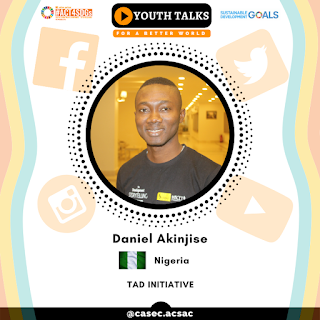It is no longer news that
thirty-five countries of the African Union have ratified the African
Continental Free Trade Area (AFCFTA) agreement, which is a free trade area
policy founded in 2018 to create a single continental market for goods and
services. It promises to enable free movement of business persons and
investments while potentially being the world's largest free trade area since
the formation of the World Trade Organization. Despite the fact that there are
several issues surrounding the optimistic success of the AFCFTA operation,
gender mainstreaming is one of the most critical aspects that must not be
ignored if we must record great success in this endeavor. In order to put a
little perspective, we should define Gender mainstreaming according to Wikipedia
“a strategy for making women's as well as men's concerns and experiences an
integral dimension of the design, implementation, monitoring and evaluation of
policies and programs in all political, economic and societal spheres so that
women and men benefit equally and inequality is not perpetuated”. Now, let’s
bring it down into the implementation and operationalization of AFCFTA, as we
hope to achieve gender equality and encourage the active participation of both
genders in the day-to-day operation of the African Continental Free Trade Area
program so as to maximize the wealth of experience and talent required for the
success of the program.
Another point to consider is that
economic development is highly achieved when women enter the marketplace, as it
has been proven that women’s economic participation decreases the dependency
ratio and improves the proportion of wage earners to dependents. In addition,
women's participation in post Covid-19 nation-building is an important
ingredient in achieving an equitable, peaceful and more prosperous African
society. For instance, if women are included in the labor force and
implementation of the African Continental Free Trade Area, more families will
be lifted out of the cycle of poverty, seeing that men alone can no longer
cater for the financial needs of the family due to inflation, currency
devaluation and globalization of skills. For a very long time in our history as
humans, the society defined power, decision making and authority as terms that
connotes masculinity and maleness, therefore excluding women in the exercise of
these very important social duties. But surprisingly, women-owned businesses
have been said to be the world fastest growing businesses around the world and
most part of African, making significant contribution in the form of
employment, innovation, and wealth generation. This can be seen in the
businesses owned by Folorunsho Alakija- Nigeria, Bethlemen Tilahun- Ethiopia,
Divine Ndhlukuka- Zimbabwe, Isabel Do Santos- Angola, Julian Adyeri- Uganda,
Salwa Akhannouch- Morocco, Saran Kaba- Liberia, Sibongile Sambo- South Africa
and Tabitha Karanja- Kenya.
In conclusion, in order to make
the AFCFTA magic happen, gender diversity, gender equality and/or gender
mainstreaming must be top on the list of policies to embrace. Even though
recently women have become actively involved in politics unlike before,
nevertheless, they still face certain challenges that limits their chances and
opportunities, which psychologically kills their morale. However, the role of
women in our continent can be re-instated and accorded respect seeing that
women entrepreneurs play a significant role in job creation, family upbringing,
wealth, poverty reduction, human capital development, education and societal
development especially in developing countries. Therefore, a robust and
consistent commitment to gender mainstreaming is an important and effective
means for African nations to support the promotion of gender equality at all
levels - in policy development, research, governance, and in other societal
empowerment activities, and to ensure that women as well as men can influence,
participate and benefit from the African Continental Free Trade Area agreement
development efforts.
Article written by Daniel Akinjise











